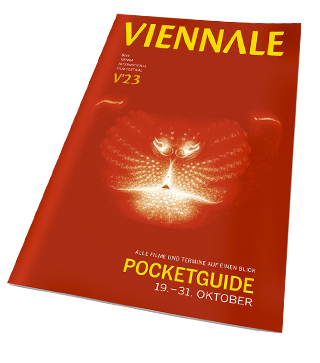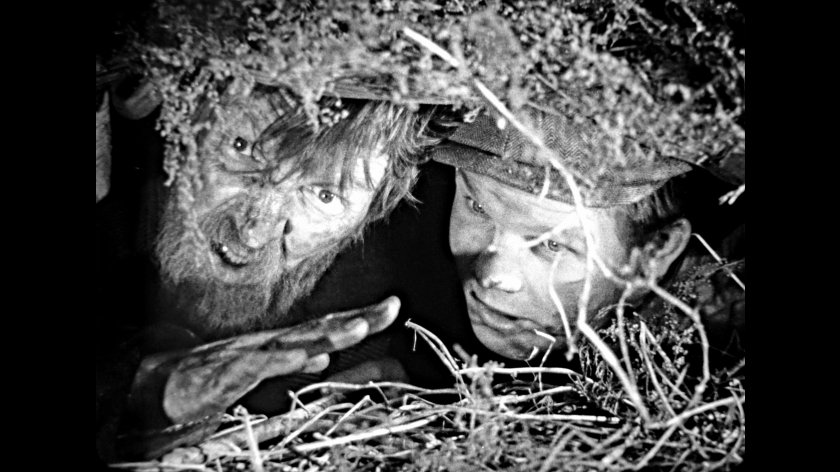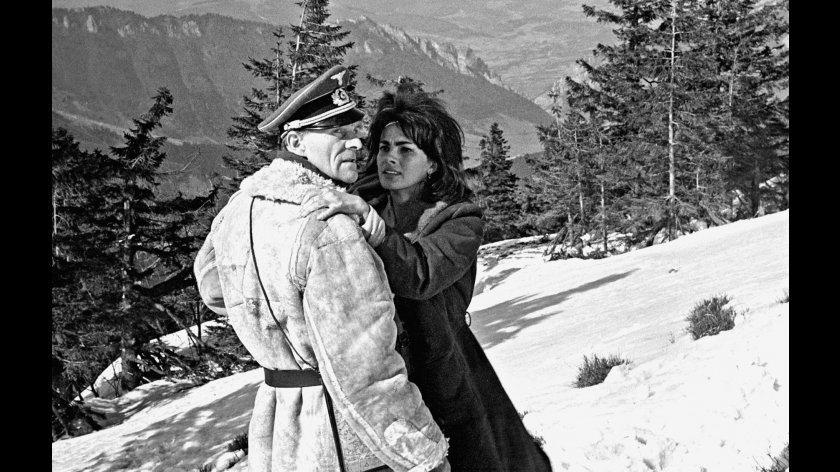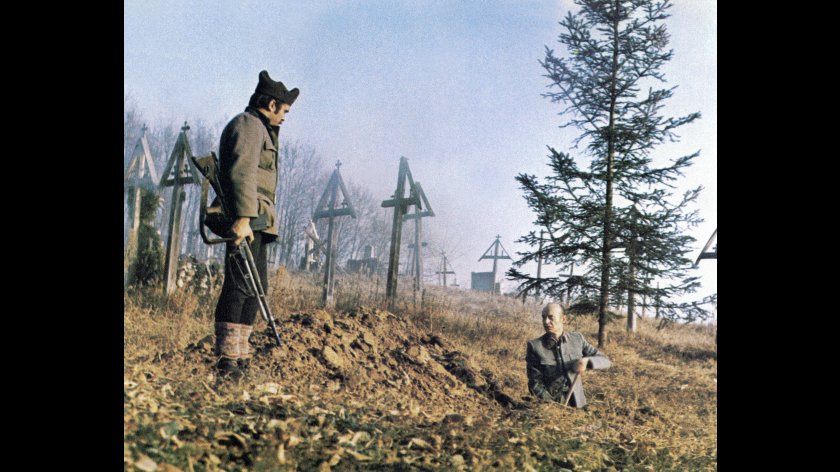Cherez kladbishche
Through The Graveyard
Dass viele bedeutende sowjetische Partisanenfilme aus Weißrussland und der Ukraine stammen, liegt an der frühzeitigen Besetzung der beiden Sowjetrepubliken. So verbrachte der aus Weißrussland stammende Viktor Turov seine Kindheit in einem deutschen Konzentrationslager, während sein Vater, ein Partisan, im Kampf starb. Die Handlung von CHEREZ KLADBISHCHE ist denkbar einfach: Als sich die Wehrmacht Stalingrad nähert, ergreifen die Partisanen die Chance, deren Versorgungslinien anzugreifen. Regiedebütant Turov kannte offensichtlich Filme von Iosseliani Tarkowski: Die alles andere als geradlinige Erzählung ist von einer bemerkenswert ausdrucksstarken Kameraführung geprägt.
On his way to conquer Moscow, Hitler first had to occupy Belorussia and Ukraine, which is why it’s no wonder that a large and important segment of Soviet partisan cinema stems from these two Soviet republics as a result. In Belorussia, the foremost poet laureate assigned to commemorate the horrors and celebrate the glories of the Great Patriotic War was People’s Artist of the USSR Viktor Turov. His dedication to the genre was deeply personal. Turov, born in 1936, spent his childhood in a German concentration camp along with his mother and sister, while his father, a partisan, died in battle. Turov’s righteous anger, passionate call-to-arms, and simultaneous embrace of humanism as parallel forces of salvation are therefore not a result of any ideology, but rather deeply felt moral imperatives, already forming the driving force for his first feature CHEREZ KLADBISHCHE. The plot is as simple as it gets. As the German army approaches Stalingrad and leaves their rear relatively undefended, Belorussian partisans see this as a great opportunity to retaliate by destroying German supply lines. CHEREZ KLADBISHCHE was shot in 1963; by that time, the Khrushchev Thaw was already in full swing, and Turev must have seen unorthodox films by his directorial colleagues such as Iosseliani, Tarkovsky, Parajanov or Daneliya. Consequently, his war narrative is far from straightforward, but rather laced with an air of intimacy and expressive camerawork.
- Vladimir Belokurov
- Vladimir Emelyanov
- Vladimir Martynov
- Elizaveta Uvarov
- Galina Moracheva
- Pavel Nilin
- Anatoliy Zabolockiy
- Vera Kolyadenko
- Andrey Volkonskiy





